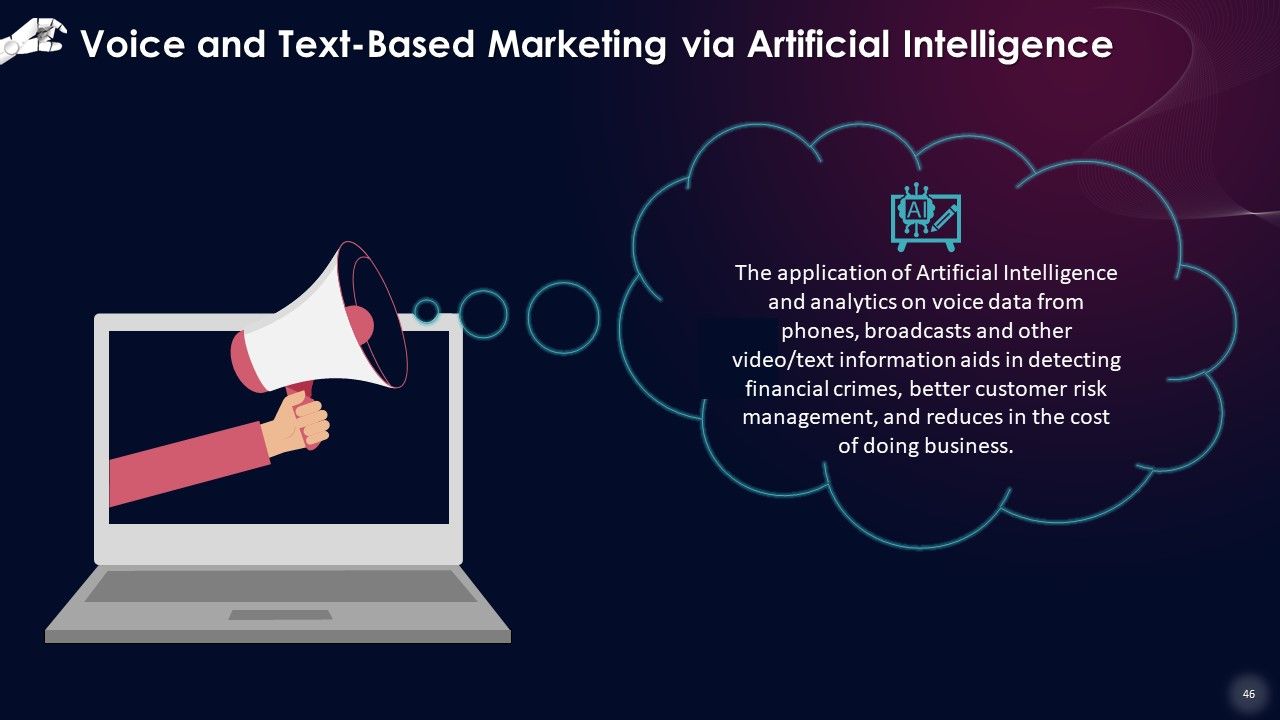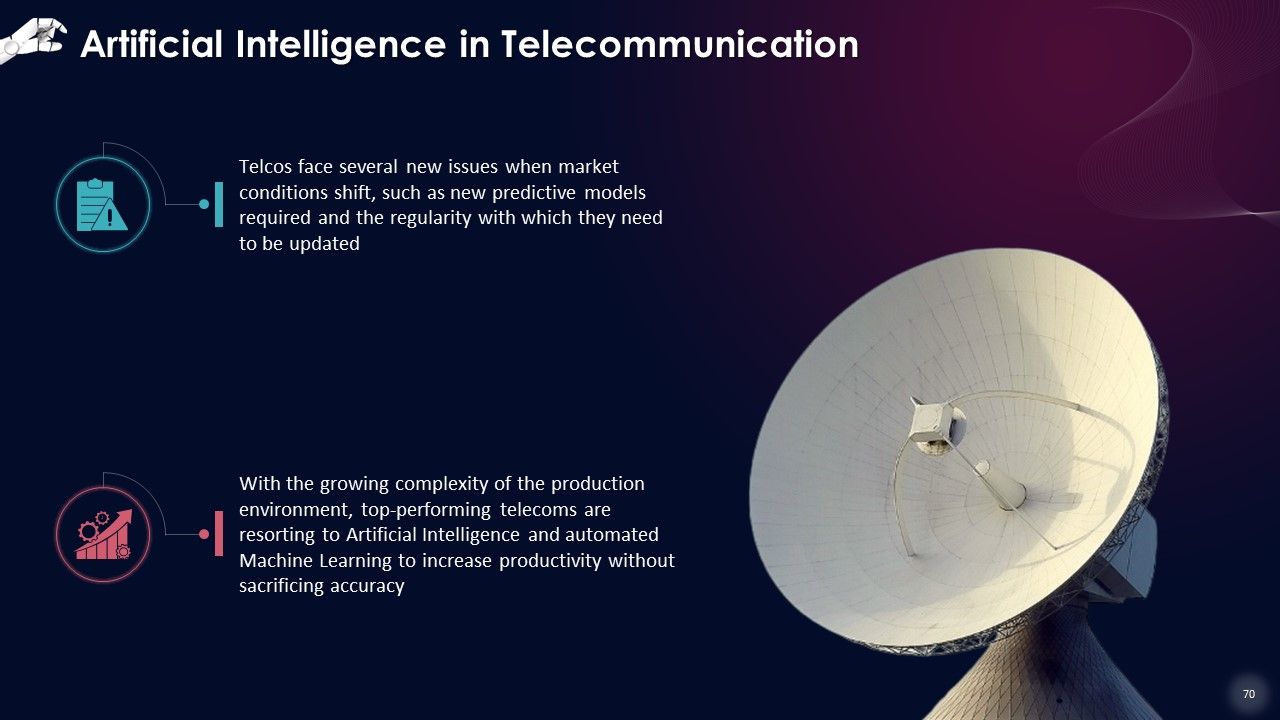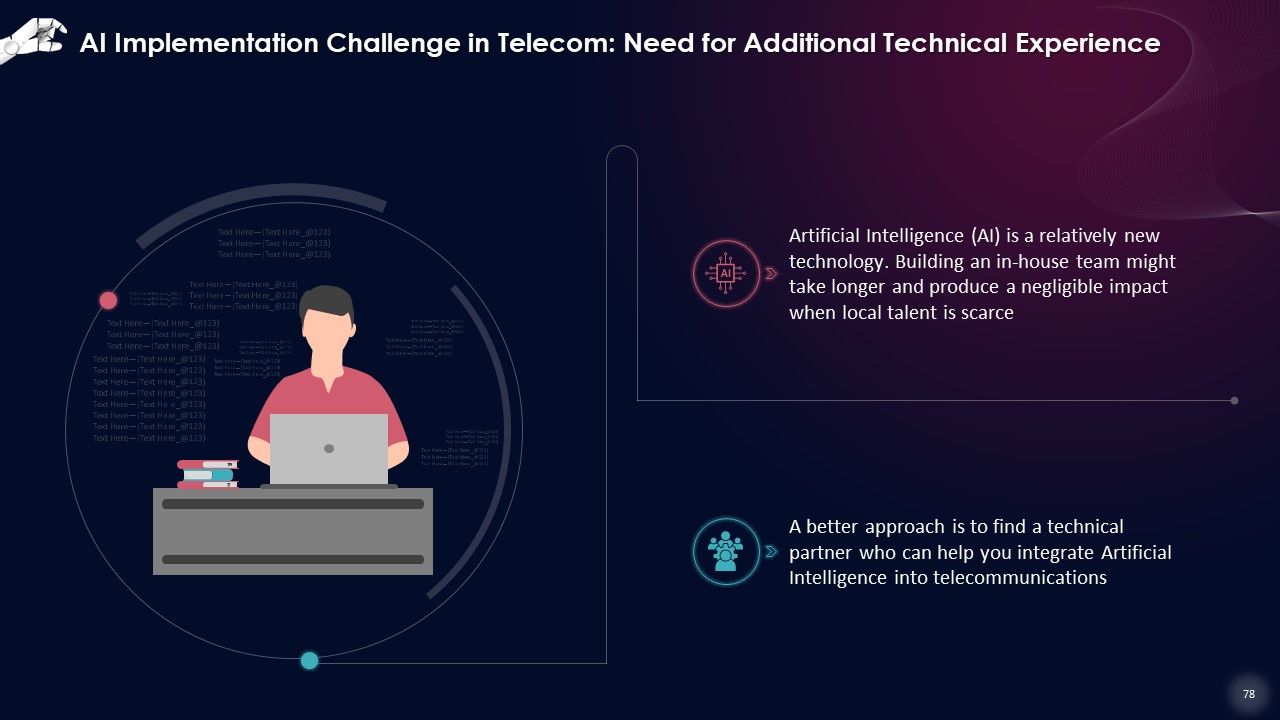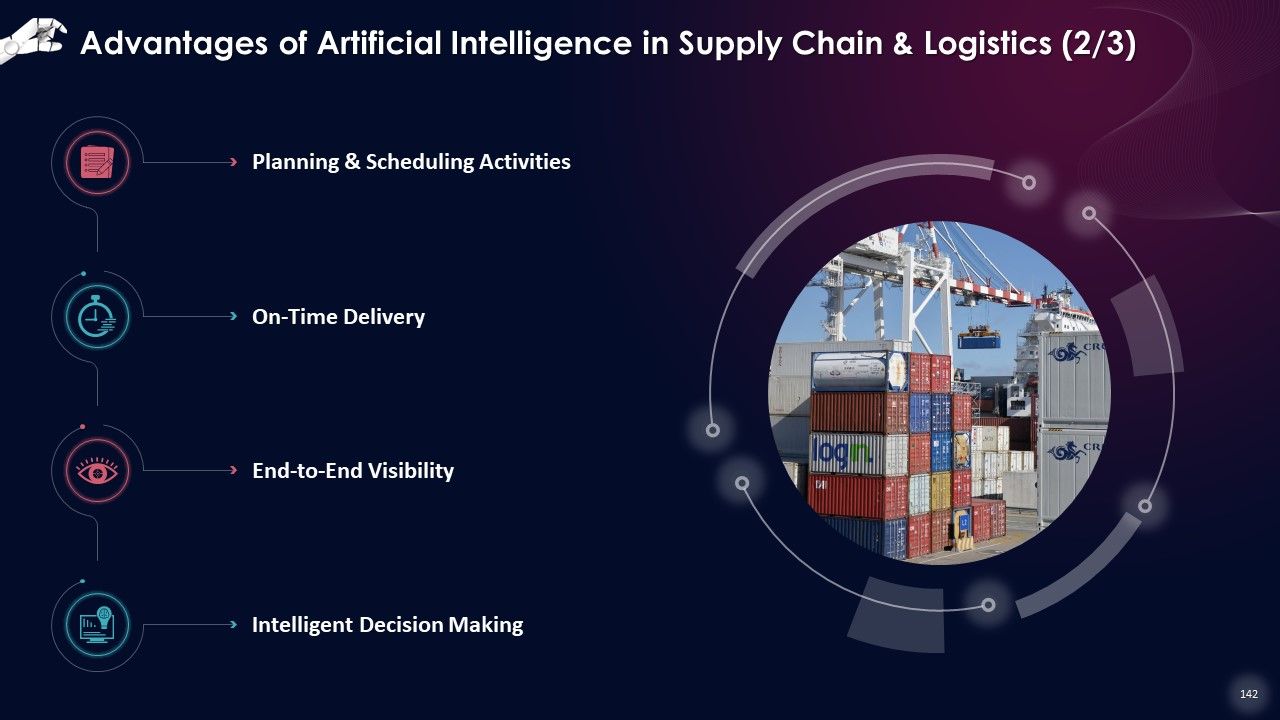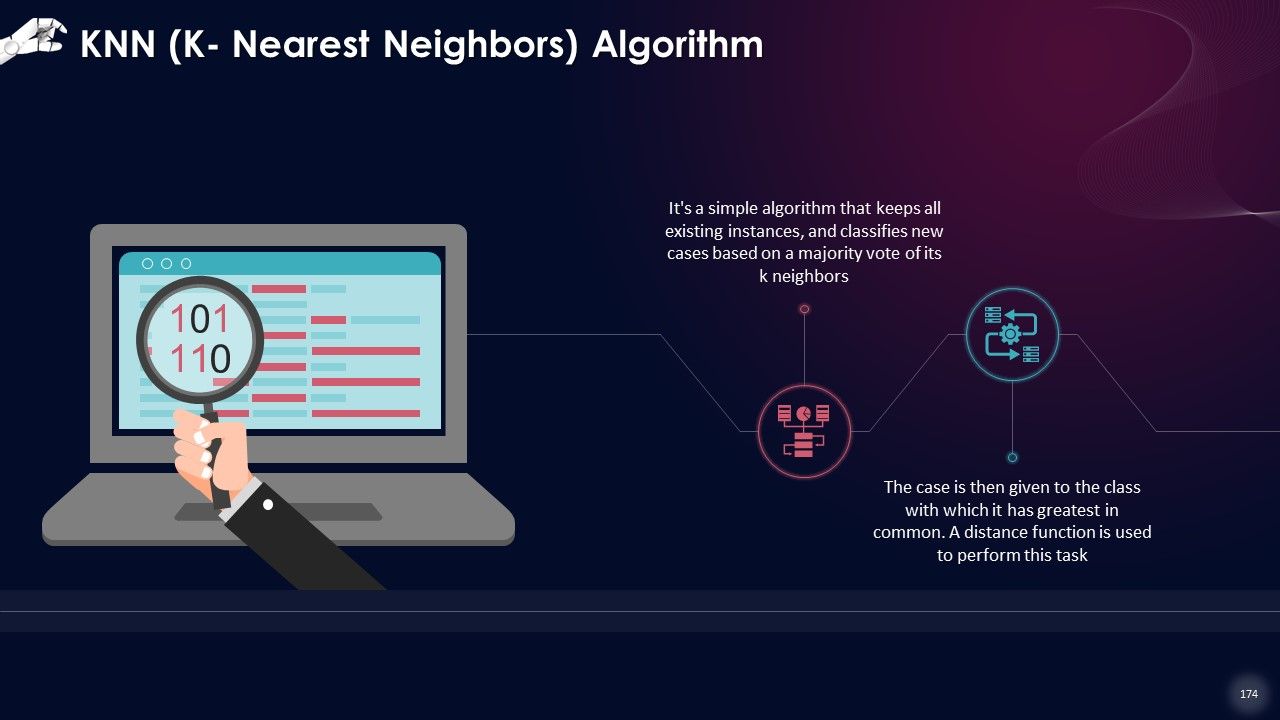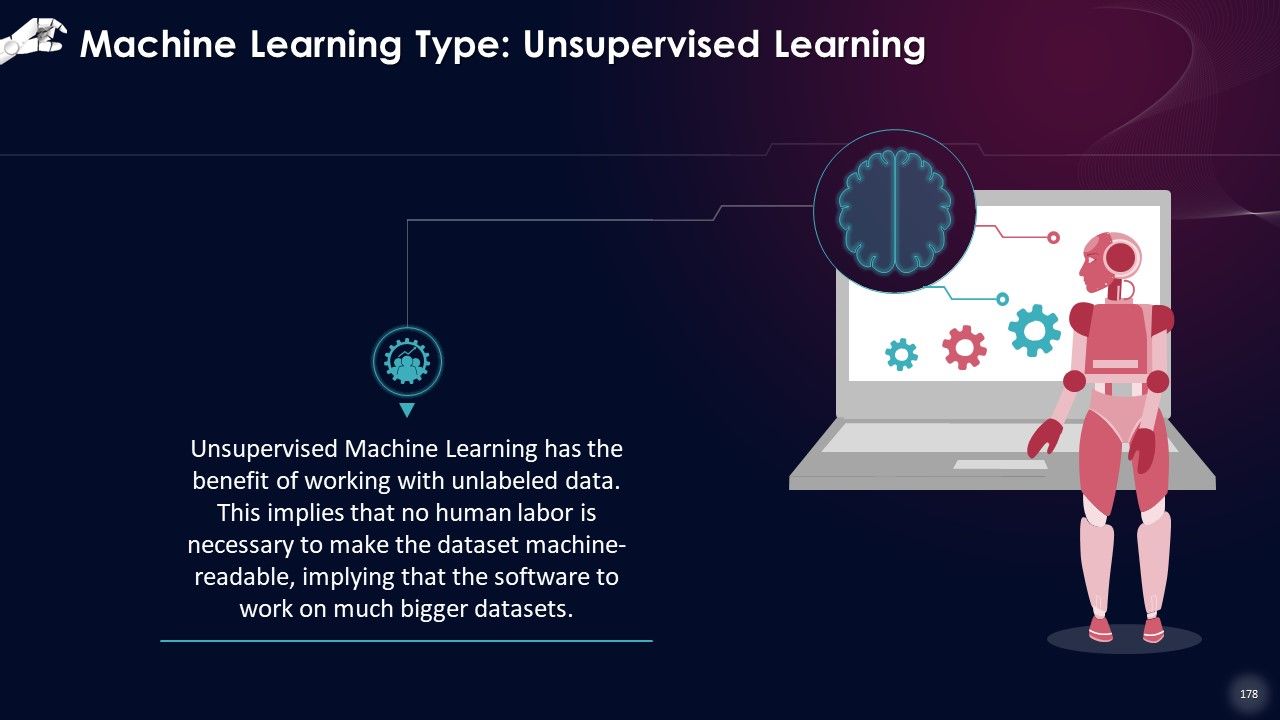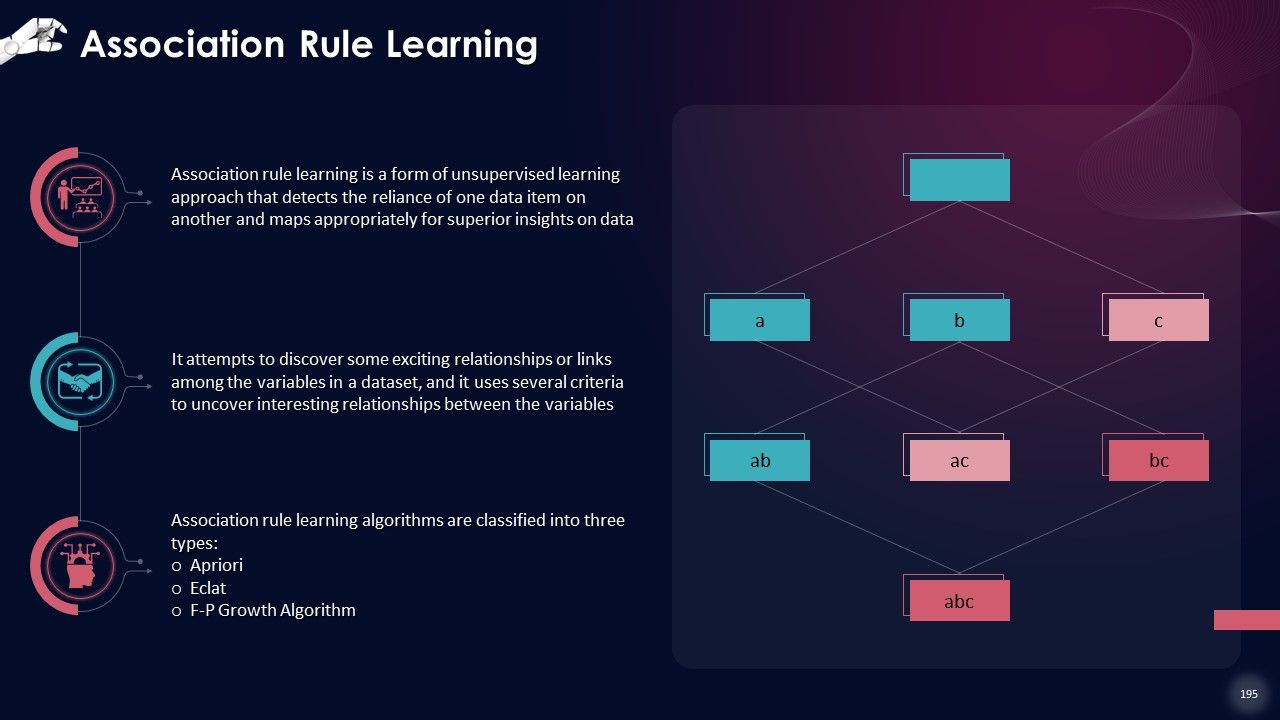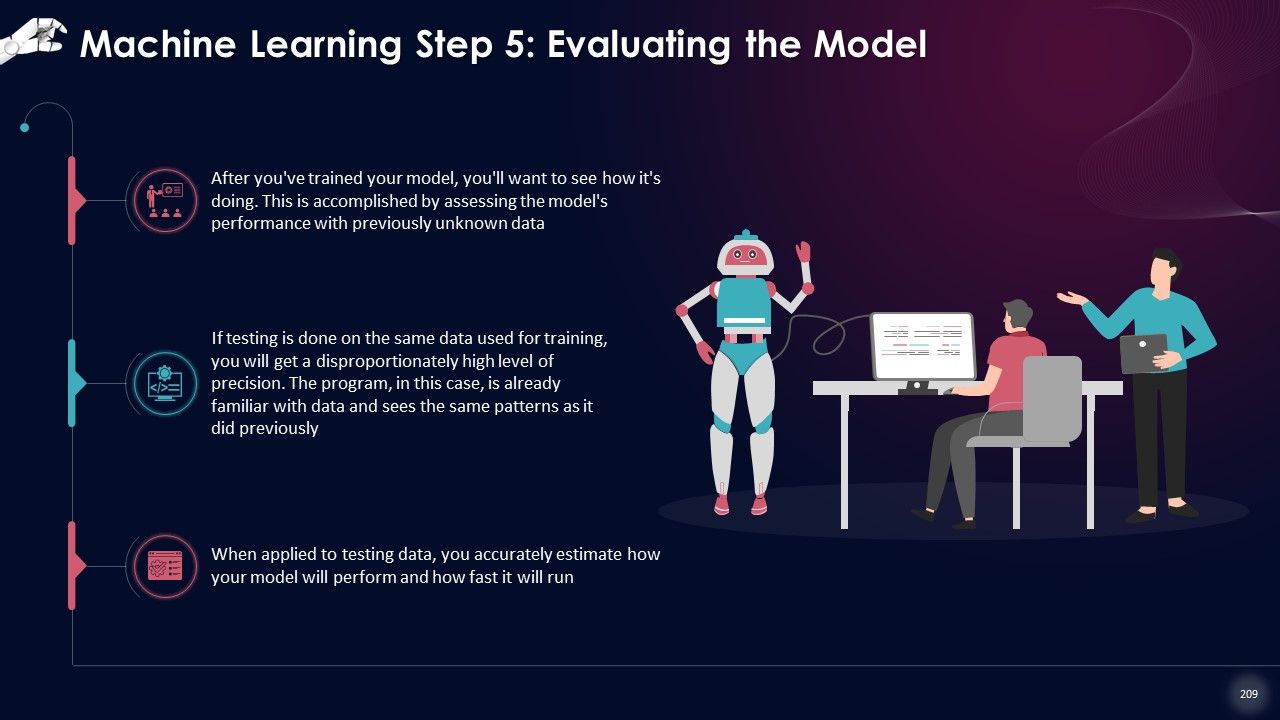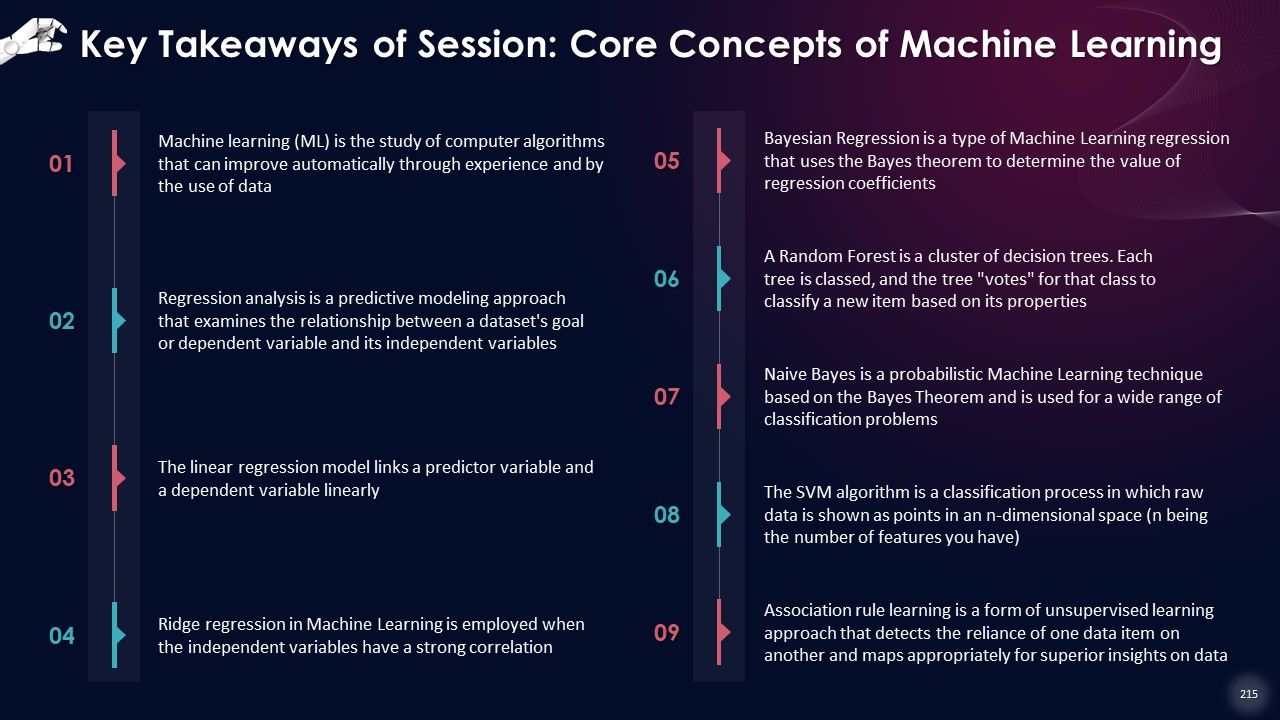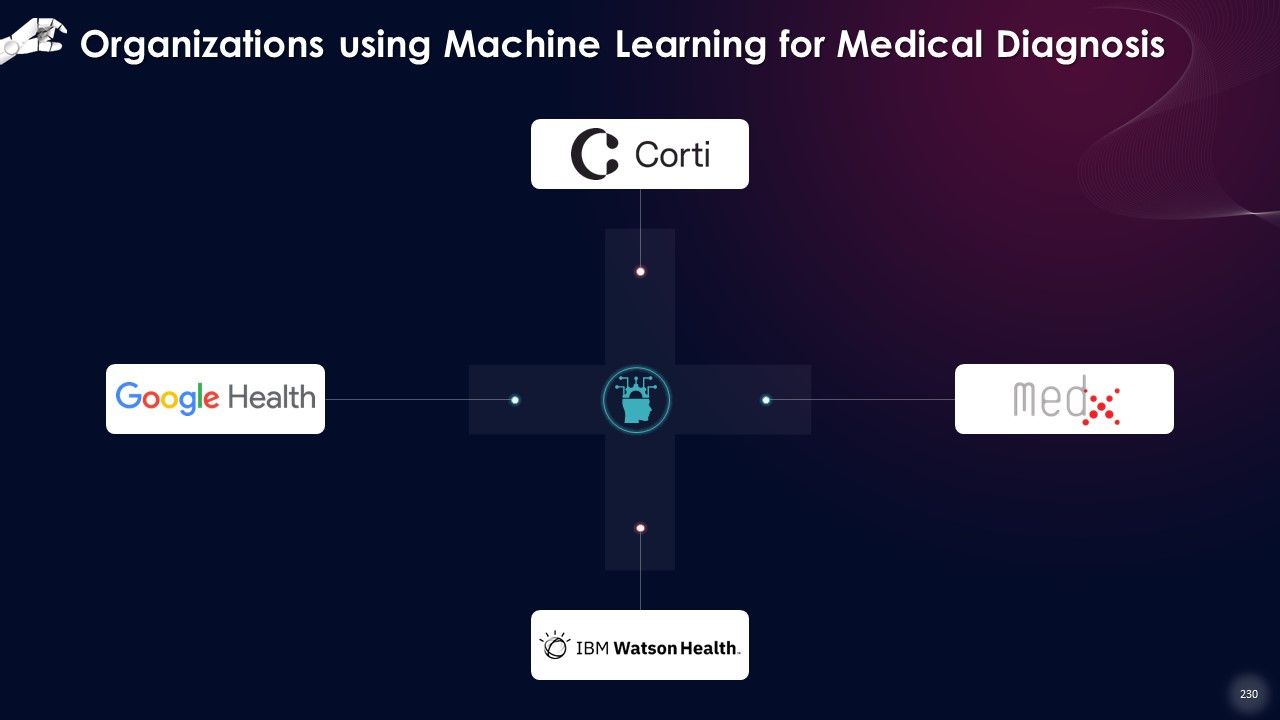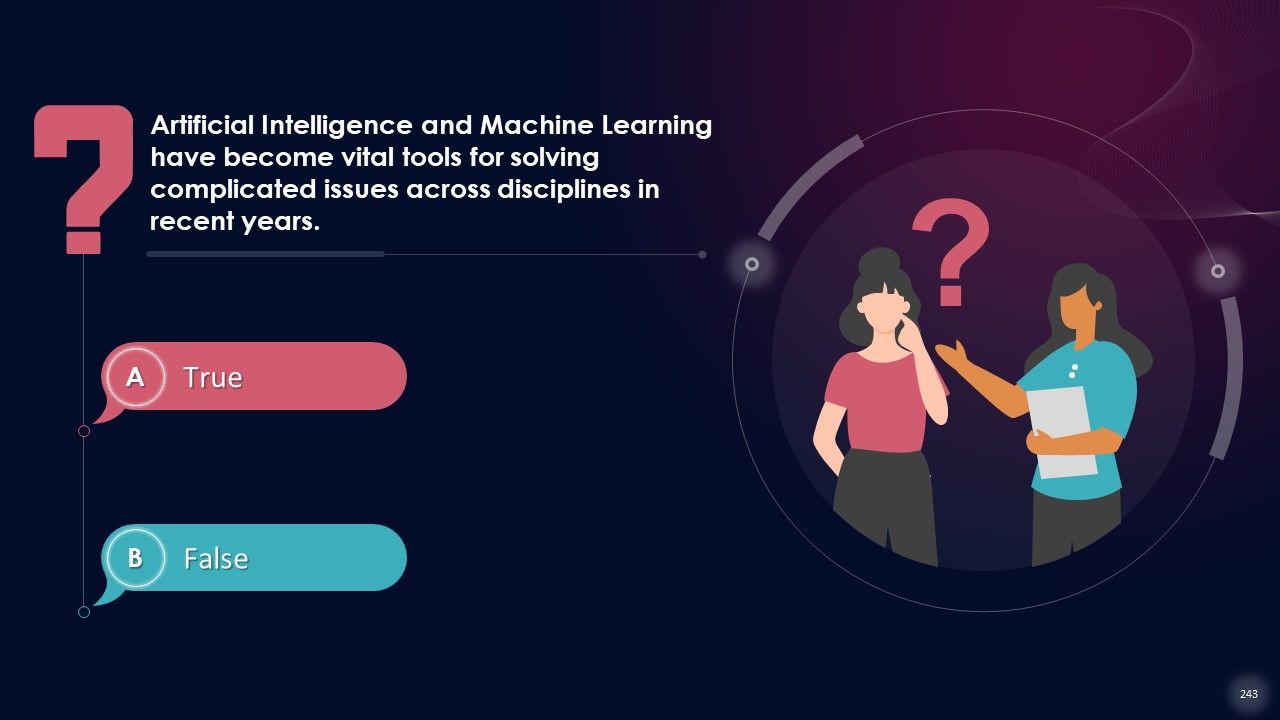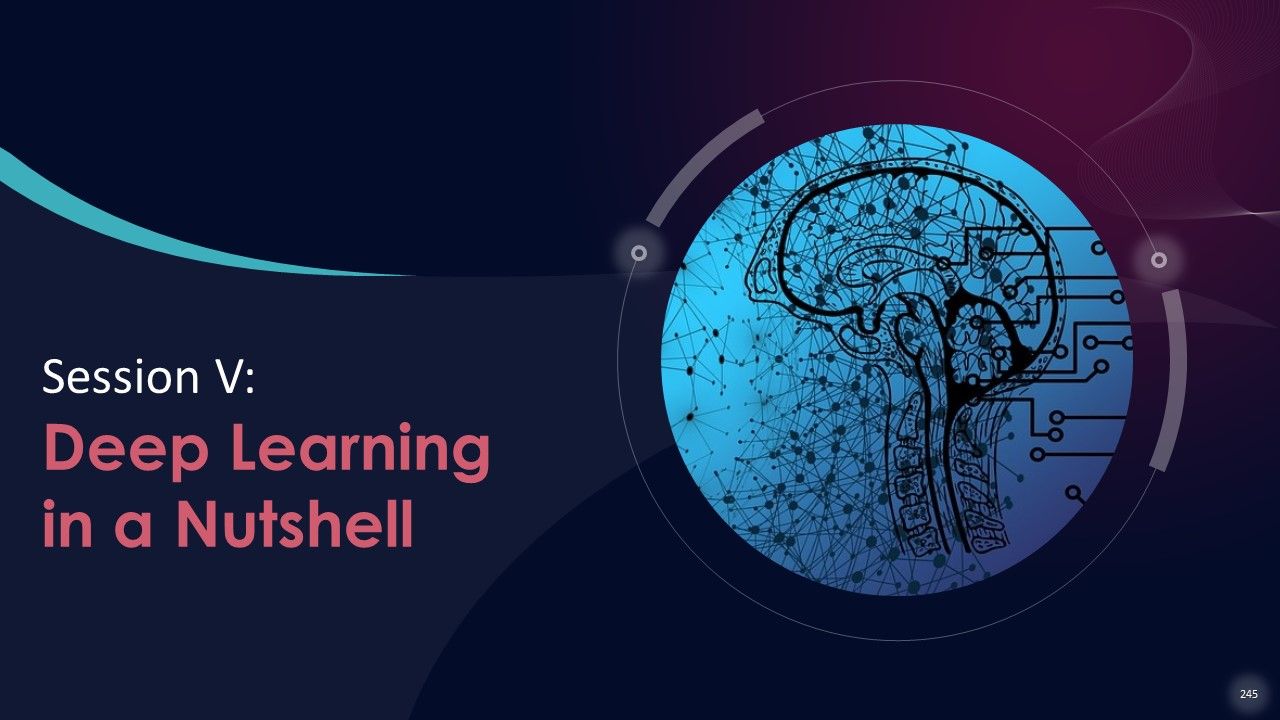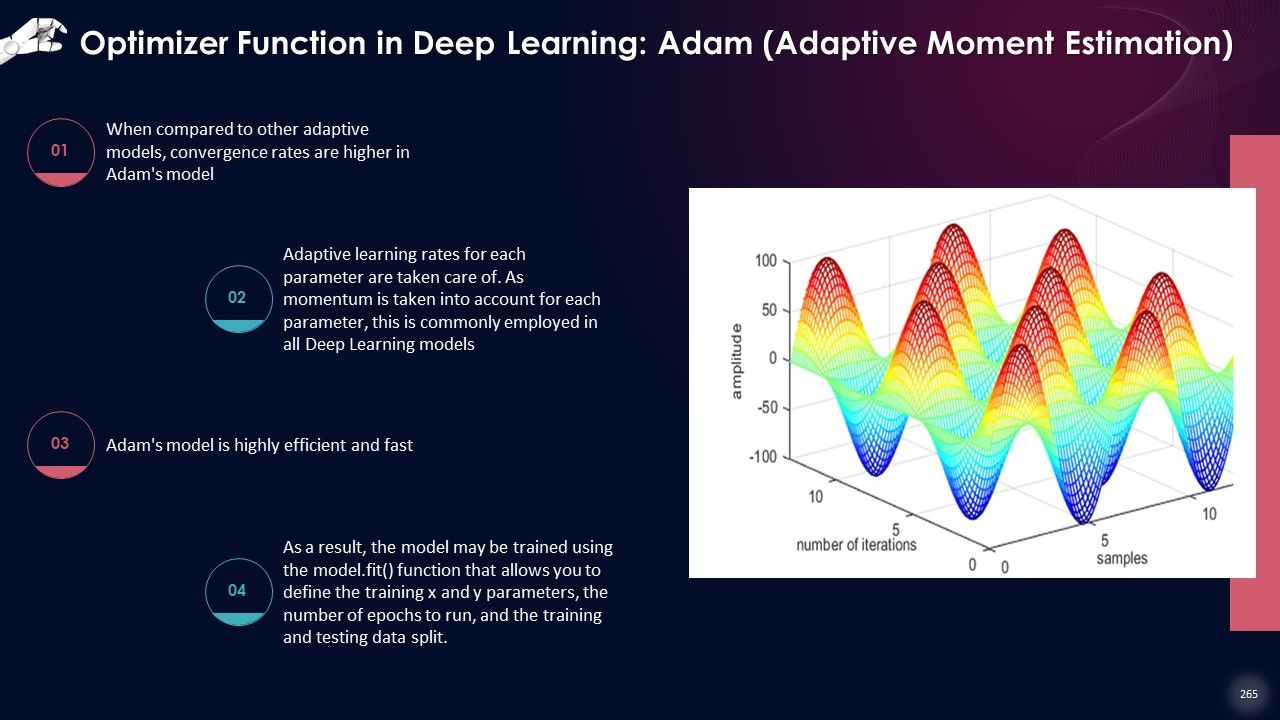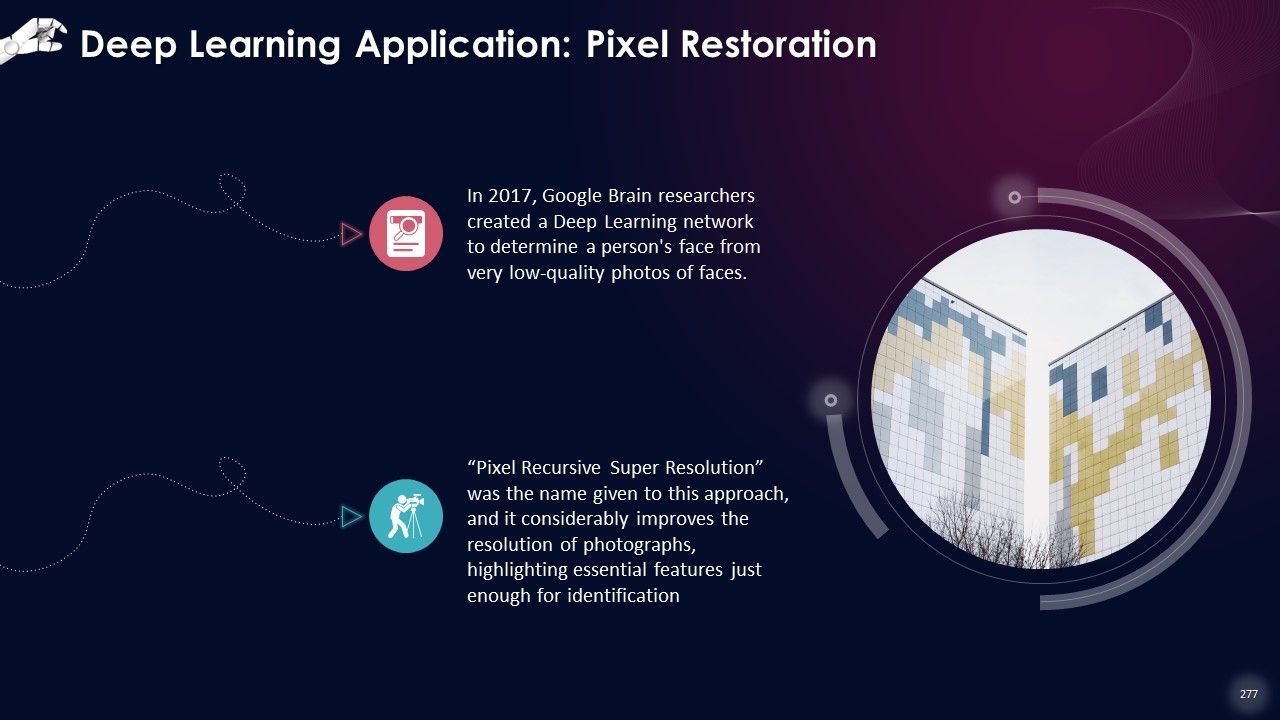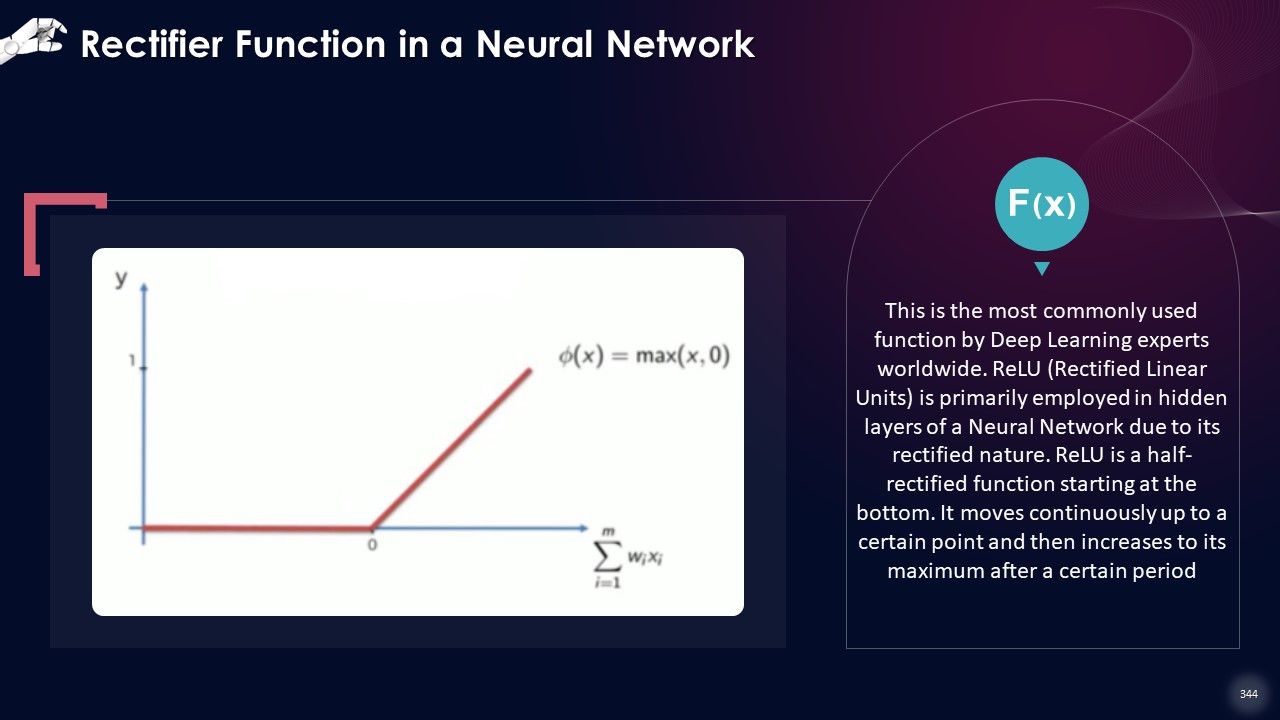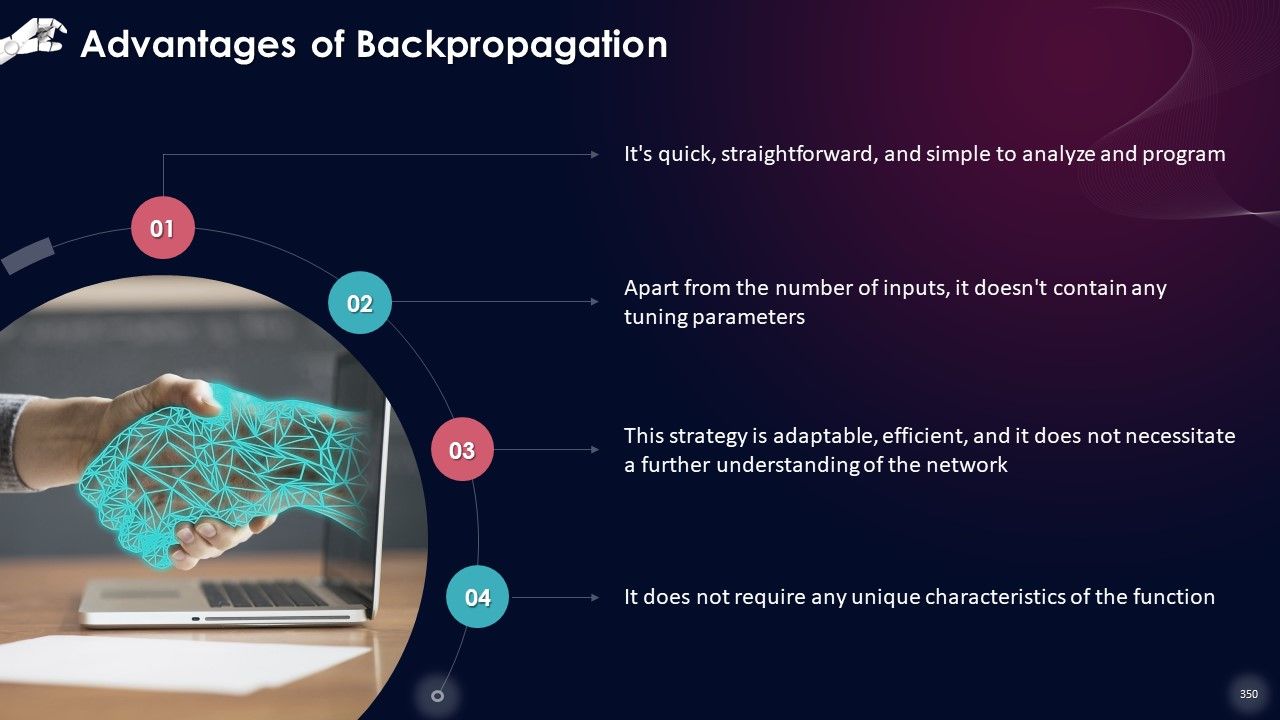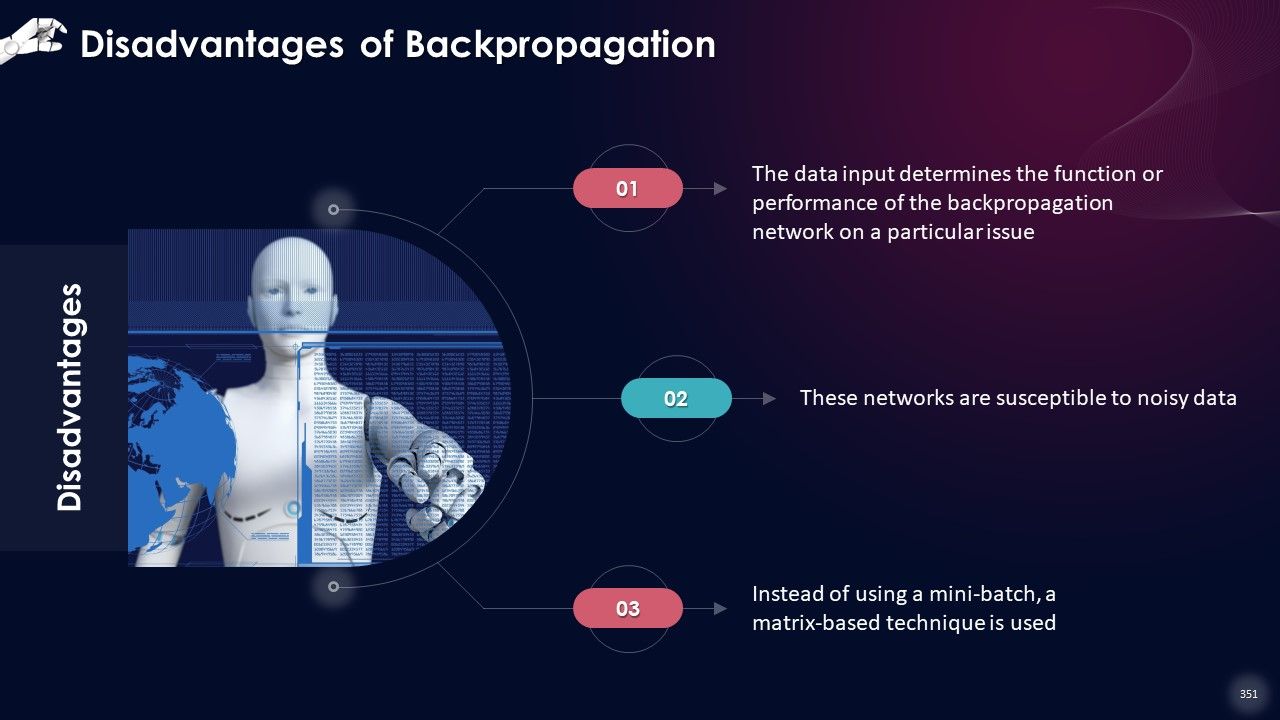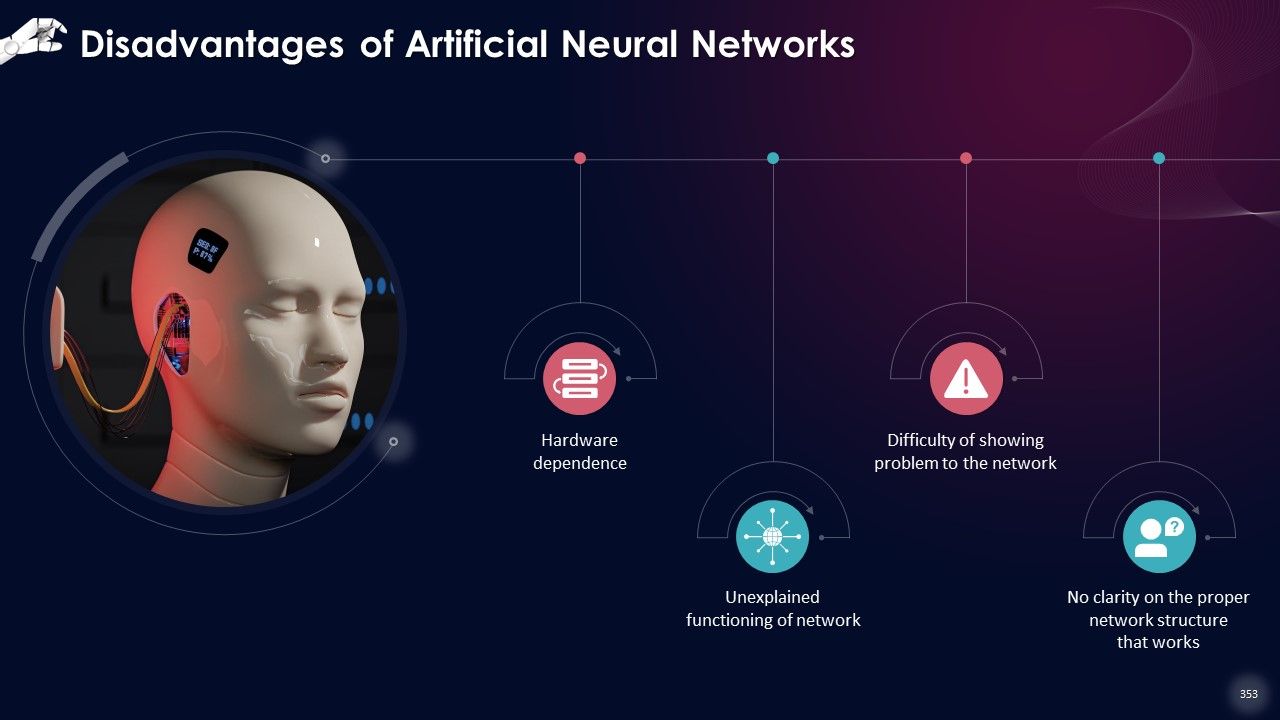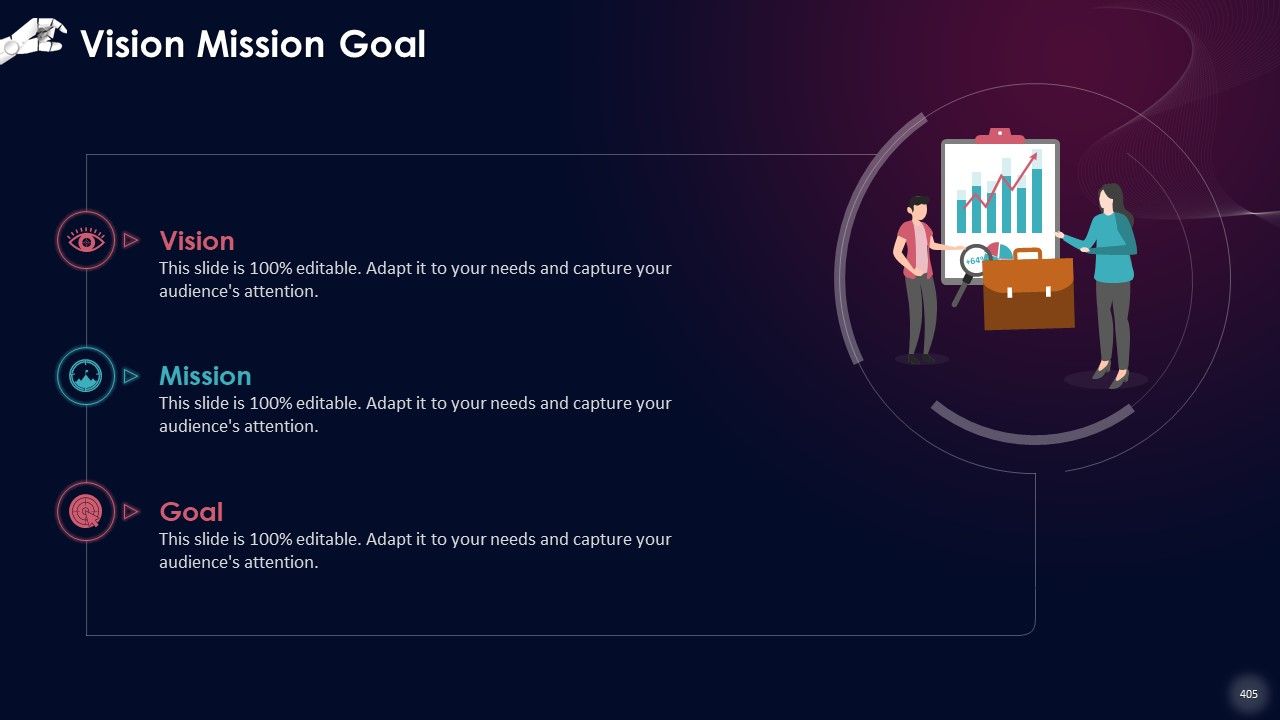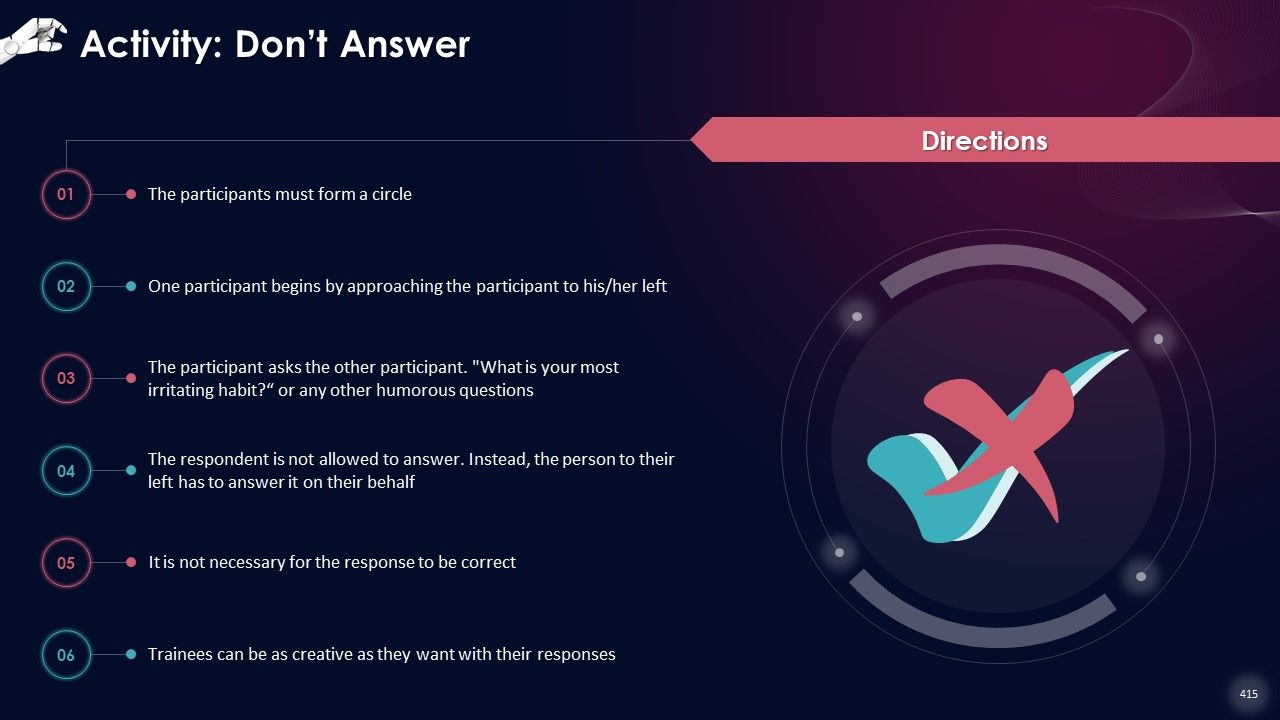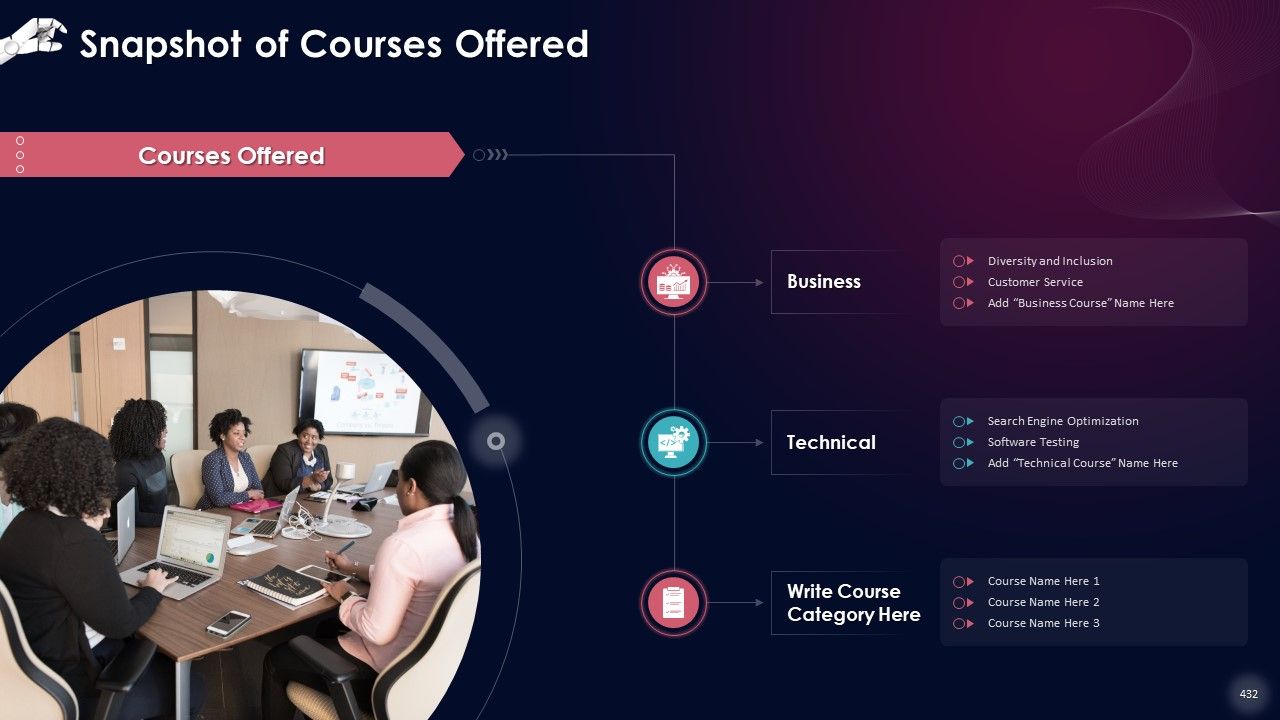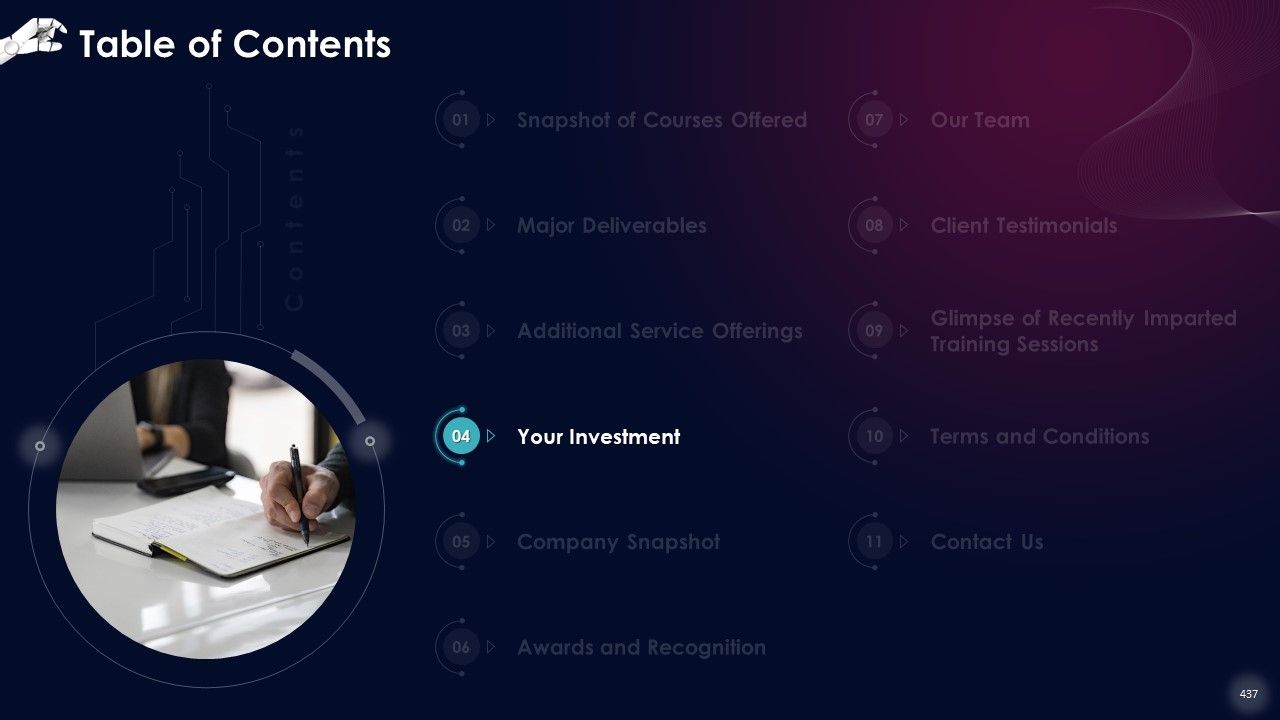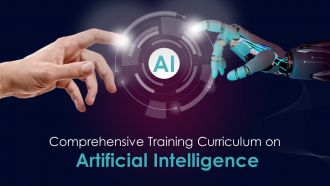Comprehensive Training Curriculum on Artificial Intelligence Training PPT
What is it
- EduDecks are professionally-created comprehensive decks that provide complete coverage of the subject under discussion
- These are also innovatively-designed for a powerful learning experience and maximum retention
Who is it for?
- EduDecks are for Trainers who want to add punch and flair to program and leave a lasting impact on their trainees
- They are also for Teachers who want to win over their students with content as well design
Why EduDecks?
- EduDecks provide an A-Z coverage of courses on any topic and covers it in both great depth and wide scope
- These slides are also professionally-designed to deliver a punch to your programs
Why Corporate Trainers love us?
- Content created by Industry experts, active in their fields
- Relevant concepts supplemented with industry case studies
- Visually appealing slides with 100% accurate & relevant data
Why Teachers love us?
- Comprehensive curriculum covering all aspects of the topic
- Relevant examples provided with the topics
- Just download and amaze your audience without making any content changes
What you will get
- 08 Structured Sessions
- 35+ Thought Provoking Discussion Questions
- Detailed Explanation of Concepts
- 400+ Professionally Designed Slides
People who downloaded this PowerPoint presentation also viewed the following :
- All Decks , IT , All Modules , All Courses , Artificial Intelligence , Edu Tech , Artificial Intelligence , IT , IT Playbook , IT Strategy , Artificial Intelligence , Artificial Intelligence
Create an Immersive Training Experience
Created by Subject Matter Experts
Professionally Designed Slides
Structured Sessions
Comprehensive Curriculum
Detailed Teaching Notes
Real-Life Case Studies
Assessment Questions
Client Proposal
Complete Curriculum
- Introduction to Artificial Intelligence
- History of AI
- Types of AI
- Based on Functionality
- Based on Capabilities
- Artificial Narrow Intelligence
- Artificial General Intelligence
- Artificial Super Intelligence
- Importance of AI
- AI vs Human Intelligence
- Building Blocks of AI
- AI Trends
- AI Statistics
- Key Takeaways
- Let’s Test What We Have Learnt
- Applications of Artificial Intelligence in
- Marketing
- Finance
- Defense & Military
- Telecommunication
- Sales
- Healthcare
- Automobile Industry
- Gaming
- E-Commerce Industry
- Social Media
- Robots
- Education Sector
- Chatbots
- Agriculture
- Supply Chain
- Navigation
- Lifestyle
- Human Resources
- Key Takeaways
- Let’s Discuss
- Overview of Machine Learning
- History of Machine Learning
- Machine Learning Algorithms
- Supervised Learning
- Regression Models in ML
- Introduction to Regression Models
- Types of Regression Models
- Linear Regression
- Polynomial Regression
- Ridge Regression
- Lasso Regression
- Bayesian Regression
- Overview of Decision Trees
- Overview of Random Forest Algorithm
- Classification Models in ML
- Logistic Regression
- KNN Algorithm
- Naive Bayes Algorithm
- SVM Algorithm
- Unsupervised Learning
-
- Clustering in ML
- Types of Clustering in ML
- Partitioning Clustering
- Density-Based Clustering
- Distribution Model-Based Clustering
- Hierarchical Clustering
- Fuzzy Clustering
- Overview of Clustering Algorithms in ML
- Types of Clustering Algorithms
- K-means Algorithm
- Mean-Shift Algorithm
- DBSCAN Algorithm
- Expectation-Maximization Clustering using GMM
- Agglomerative Hierarchical Algorithm
- Affinity Propagation
- Application of Clustering
- Association Rule Learning
- Apriori Algorithm
- Eclat Algorithm
- F-P Growth Algorithm
- Applications of Association Rule Learning
- Hidden Markov Model
-
- Reinforcement Learning
- Supervised Learning
- Importance of Machine Learning
- Steps in Machine Learning
- Data Collection
- Data Preparation
- Choosing a Model
- Training the Model
- Evaluating the Model
- Parameter Tuning
- Making Predictions
- Advantages of Machine Learning
- Disadvantages of Machine Learning
- Future of Machine Learning
- Key Takeaways
- Let’s Test What We Have Learnt
- Introduction to Automatic Language Translation using ML
- Google Translate
- Microsoft Translate
- Facebook Translator
- Limitations of Automatic Language Translator
- Introduction to Medical Diagnosis Using ML
- Objectives of ML-powered Medical Diagnosis
- Benefits of ML-powered Medical Diagnosis
- Applications of ML-powered Medical Diagnosis
- Organizations using ML for Medical Diagnosis
- Introduction to Image Recognition using ML
- Working of Image Recognition
- ML Image Recognition Models
- Image Recognition Application for Face Analysis
- Image recognition Application for Animal Monitoring
- Introduction to Speech Recognition using ML
- Speech Recognition System
- Key Features of Speech Recognition
- Speech Recognition Algorithms
- Speech Recognition with Machine Learning Use Case: IBM
- Key Takeaways
- Let’s Test What We Have Learnt
- Introduction to Deep Learning
- Importance of Deep Learning
- Working of Deep Learning
- Machine Learning vs Deep Learning
- Functions of Deep Learning
- Sigmoid Activation Function
- Hyperbolic Tangent Function
- ReLU
- Loss Functions
- Mean Absolute Error
- Mean Squared Error
- Hinge Loss
- Cross-Entropy
- Optimizer Functions
- Stochastic Gradient Descent
- Adagrad
- Adadelta
- Adaptive Moment Estimation
- Deep Learning Process
- Working of Deep Learning
- Deep Neural Network
- Deep Learning Technique
- How to Create Deep Learning models?
- Two Phases of Learning
- Advantages of Deep Learning
- Applications of Deep Learning
- Detecting Developmental Delay in Children
- Colorization of Black and White Images
- Adding sound to Silent Movies
- Pixel Restoration
- Sequence Generation
- Toxicity testing for chemical structures
- Radiology/Detection of mitosis
- Market Prediction
- Fraud Detection
- Earthquake Prediction
- Deep Fakes
- Limitations of Deep Learning
- Key Takeaways
- Let’s Discuss
- Introduction to Natural Language Processing (NLP)
- Understanding NLP
- NLP Techniques
- Working of NLP
- Importance of NLP
- Steps of NLP
- Lexical Analysis
- Syntactic Analysis
- Semantic Analysis
- Discourse Integration
- Pragmatic Analysis
- Applications of NLP
- Introduction to Natural Language Generation (NLG)
- Working of NLG
- Applications of NLG
- Advantages of NLG
- Introduction to Natural Language Understanding (NLU)
- NLP vs NLU
- NLU Use Cases
- Automatic Ticket Routing
- Automated Reasoning
- Machine Translation
- Question Answering
- Importance of NLU
- Factors to Consider while selecting NLU solutions
- Evaluating the accuracy of NLU solutions
- Leading NLU Companies
- NLP vs NLG vs NLU
- AI vs ML
- ML vs DL
- AI vs ML vs DL
- Key Takeaways
- Overview of Hybrid Model
- Pros and Cons of Hybrid Model
- Introduction to ANN (Artificial Neural Network)
- Layers in a Neural Network
- Neurons in a Neural Network
- Activation Function in a Neural Network
- Threshold Function in a Neural Network
- Sigmoid Function in a Neural Network
- Rectifier Function in a Neural Network
- Hyperbolic Tangent Function in a Neural Network
- Working of a Neural Network
- Introduction to Gradient Descent
- Types of Gradient Descent
- Introduction to Backpropagation
- Advantages of Backpropagation
- Disadvantages of Backpropagation
- Advantages of ANN
- Disadvantages of ANN
- Introduction to CNN (Convolutional Neural Network)
- Working of CNN
- Convolutional layer in CNN
- Hyperparameters of Convolutional Layer in CNN
- Pooling Layer in CNN
- Fully-Connected Layer in CNN
- Working of CNN
- Introduction to Autoencoders
- Components of Autoencoders
- Types of Autoencoders
- Applications of Autoencoders
- Introduction to Variational Autoencoders
- Introduction to Feedforward Neural Networks
- Introduction to Recurrent Neural Networks (RNN)
- Recurrent Neural Network vs Feedforward Neural Network
- Why RNN?
- Problems with RNN
- Types of RNN
- Variants of RNN Architectures
- Bidirectional RNN
- Long Short-Term Memory
- Gated Recurrent Units
- Advantages of RNN
- Disadvantages of RNN
- Applications of RNN
- Introduction to Mixture Density Network
- Components of Mixture Density Networks
- How does a Mixture Density Network look like?
- Key Takeaways
- Let’s Discuss
- AI Strategies for Business Outcomes
- Evaluating Current Capacities of AI
- Building an AI Strategy
- Roadmap For Building a Viable AI Strategy
- Strategy for AI Business Models
- Five-Step Implementation Plan for AI
- AI Assessment Roadmap
- Top AI Job Roles
- Myths and Facts around AI
- ABCDE Framework for AI Enterprise Strategy
- Key Takeaways
- Let’s Discuss
FAQs
We provide training decks on a wide variety of business and technical topics such as Diversity & Inclusion, Customer Service, Search Engine Optimization, Blockchain Technology, and many more. These are ready-to-present decks that can be downloaded and presented in their current form. These decks are carefully created by industry experts, designed by professionals to deliver a power packed training session.
We want our training decks to evoke curiosity and inspire passion for learning. Each training deck consists of multiple sessions with impeccably designed slides to explain concepts in-depth, key takeaways to summarize sessions, discussions, and multiple-choice questions to assess trainees’ learning. The deck also contains activities and memes to break the monotony and make the training more interactive. Each training deck comes with an assessment form and editable proposal to help pitch your training to clients with success.
It depends on the trainer's content delivery pace, but each deck is created to ensure that training content is for a minimum of 16 hours.
Yes. A significant segment of our customers are professional mentors, coaches and teachers. You can create presentations with our content and distribute these to your trainees. The only caveat is that you cannot share your subscription to our content with others; the license is not transferable. Also, you cannot resell SlideTeam content to others.
Each slide is 100% editable in PowerPoint. Every element of the slide – text, icons, images, vectors, color scheme, etc. can be modified to build an effective PowerPoint presentation. Simply DOWNLOAD, EDIT, and PRESENT!
All PPT slides are compatible with PowerPoint 2007 and above. Some diagrams will not show up correctly with older versions of PowerPoint, like PowerPoint 2003 or lower, because of rendering issues. Yes, they work with PowerPoint for MAC, and decks are compatible with Google Slides too.
Absolutely yes! Our decks are yours to keep and build upon even after your subscription expires. You will not be able to download any additional decks once your subscription expires, but the ones you've downloaded are yours to keep forever.
Our entire website is HTTPS secure, and our payment system is managed by PayPal and Stripe, two of the world's leaders in credit card payment systems and very respected companies in online payments. This makes our systems 100% secure. We do not store or have access to any credit card information ourselves. We direct you to these third-party secure sites with 100% secure SSL connections where you can safely purchase a subscription and then direct you back to our site to download products.
You are allowed to log in and download content from 3 computers. Our website keeps track of login IP addresses, MAC Address Usage, and Browser and Computer Operating System fingerprinting, and you will not be able to log in from more than three computers.

2 Item(s)
-
by Joe Thomas
4/580%These stunning templates can help you create a presentation like a pro.
-
by Dewayne Nichols
4/580%Thank you for offering such fantastic custom design services. The team is really helpful and innovative. In a very short time, I received my personalized template.
2 Item(s)















































